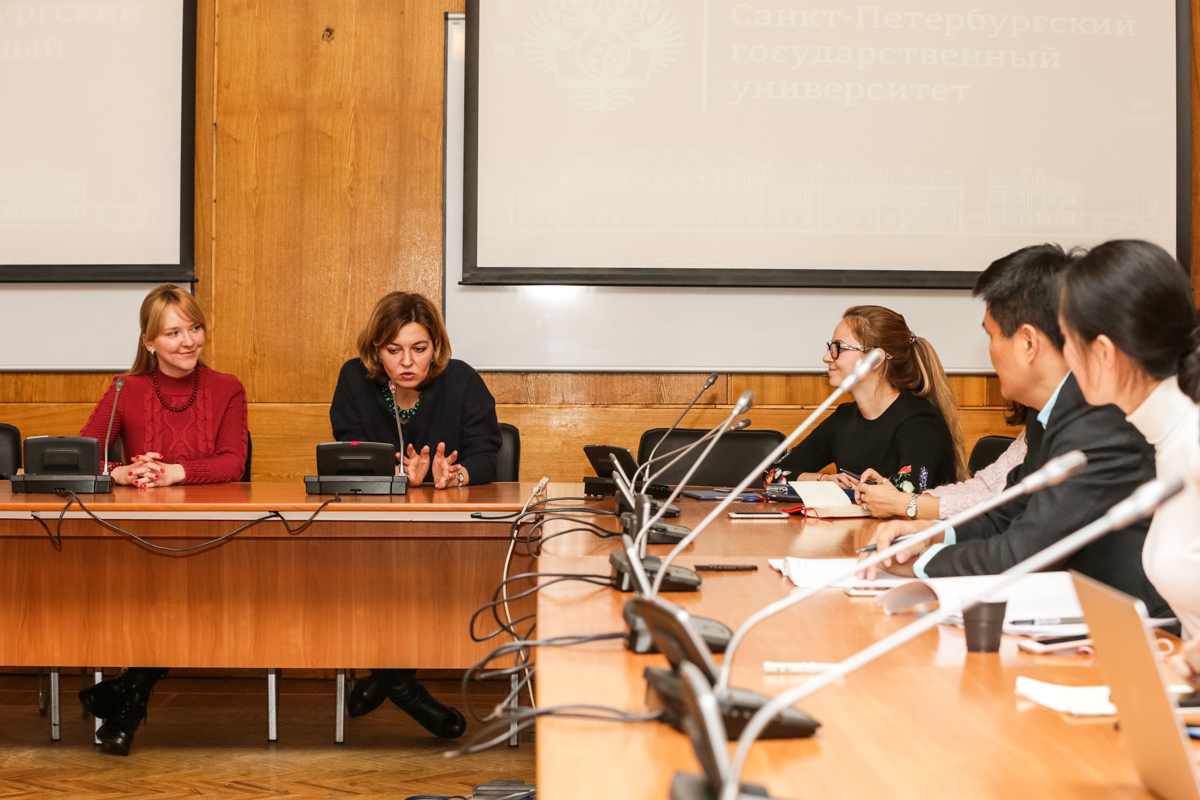Tsinghua University’s students at SPbU
The delegation of the students and academics of the Tsinghua University has visited SPbU to meet a scholar in Chinese studies and discuss Russia-China collaboration in education and culture.
In December 2017, SPbU and Tsinghua University signed a framework agreement on collaboration. SPbU Rector and Secretary of the Party Committee of the Tsinghua University Professor Chen Sui also discussed a joint research centre on politics and public administration in Russia and China.
Founded in 1901, Tsinghua University is a member of the C9 League, that is an alliance of 9 prestigious Chinese Universities selected by the government. For several years in a row, it grabs the top place in the Best Chinese Universities Ranking and is among the top 30 universities worldwide, according to the QS World University Rankings. Among its alumni are globally recognized artists, politicians, and scientists, in particular the Nobel Prize winner in Physics Yang Zhenning.
To visit the leading Russia’s university, the Chinese students had to pass the selection tests. The group comprises a range of fields of study: from the humanities to natural sciences. They will also visit Moscow and Kazan.
SPbU was represented by Associate Professor Iulia Mylnikova, Department of History of Far East, and Associate Professor and Director of the programme in Contemporary China: Economy, Politics, Society Polina Rysakova, Department of Theory of Social Development in Asia and Africa. They told about How Chinese was taught at the University, what programmes with a focus on China we had opened, and when we were going to open our representative office in Harbin Institute of Technology in China. They also touched upon how we developed our cultural connections with China, in particular they mentioned our meeting with Liú Zhènyún and presentation of the unique Anthology of Contemporary Russian Prose in Chinese that will be published under the aegis of SPbU.
The open discussion focused on two key issues: first, our Chinese were interested in how we, in particular our young generation, perceived the October Revolution. We particularly focused on up-to-date approaches to the-then events that are highlighted in the study guides and research projects. Second, the delegation was interested in how we regarded the national strategic initiative “One Belt and One Road” that focused on developing new roads and maintaining the existing ones between the countries in the Central Asia, Africa, and Europe. Of particular interest were joint Russia-China projects.
The meeting was conducted in the Chinese language in a warm atmosphere. Our Chinese colleagues were impressed by how we fluently communicated in Chinese with them. Their programme also featured an excursion around the oldest university in Russia and a presentation of its history.



